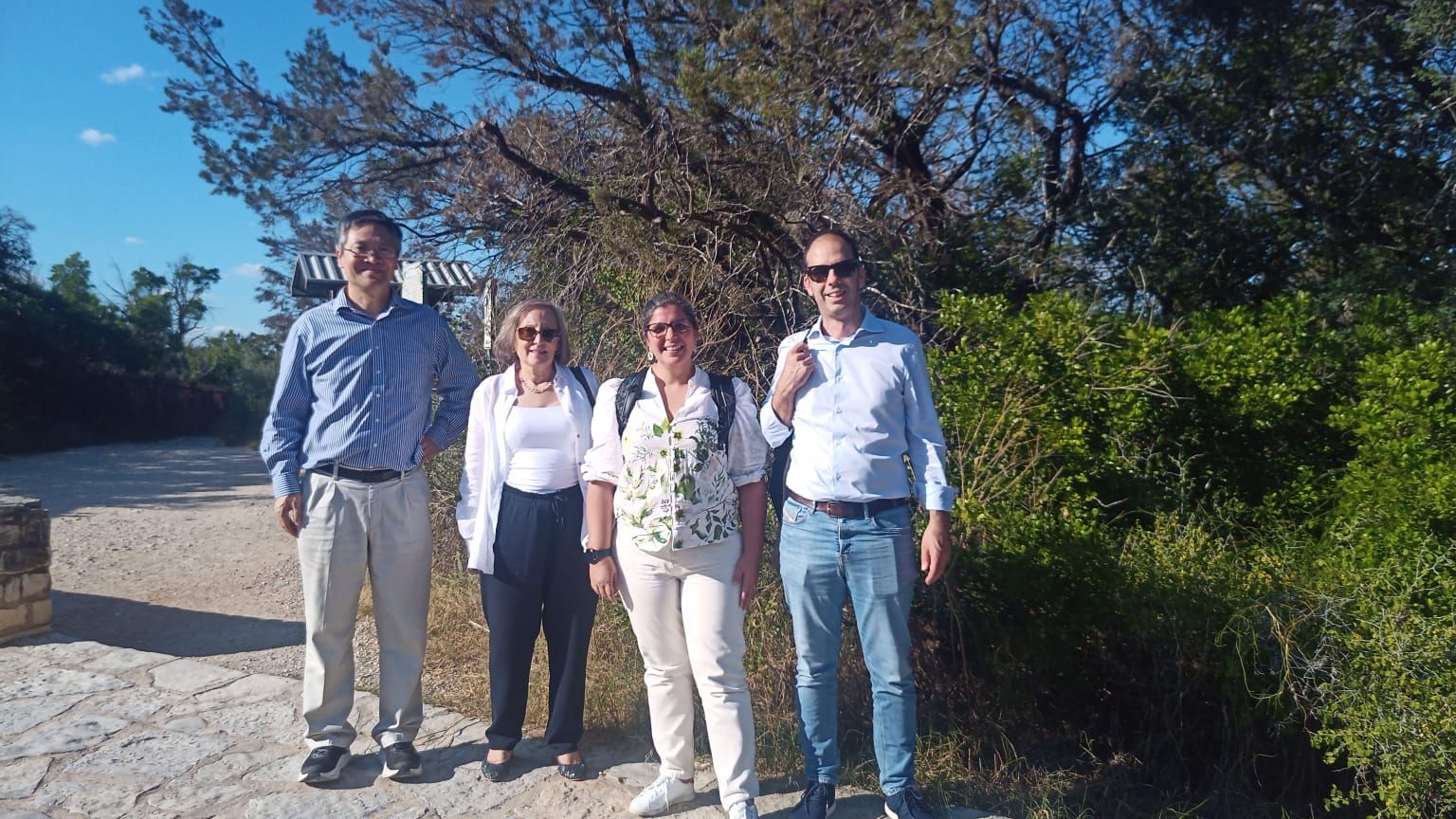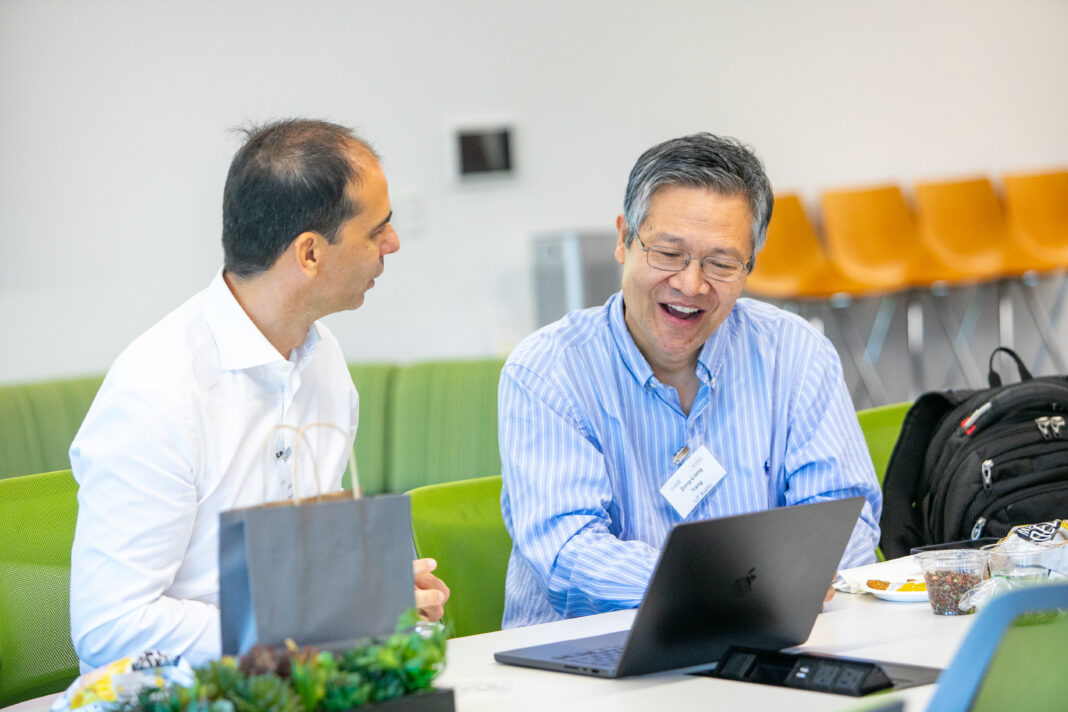Dr. Zong-Liang Yang is a Professor in the Department of Earth and Planetary Sciences at the University of Texas at Austin, holding the John A. and Katherine G. Jackson Chair in Earth System Sciences and the Getty Oil Company Centennial Chair in Geological Sciences. With over 220 peer-reviewed journal articles, he has a distinguished profile with a Web of Science h-index of 63 and a Google Scholar h-index of 74. Dr. Yang’s research spans water, climate, and the environment, with a focus on land-atmosphere interactions, climate feedback, and applications like extreme weather prediction. His work, including terrestrial hydrological parameterizations and land surface models, is integral to leading modeling centers worldwide, contributing significantly to climate applications and accurate forecasting of extreme events like Hurricane Harvey. For detailed publications, visit his Google Scholar page.
Strengthening Scientific Ties: My Journey with Portugal and the UT Austin-Portugal Alliance | By Dr. Zong-Liang Yang
This year marks the 17th anniversary of the UT Austin-Portugal alliance, celebrated with a two-day colloquium in Austin on September 10-11, 2024. The event brought together around 80 participants from Portugal and UT Austin. At the conclusion of the colloquium, I had the pleasure of giving three Portuguese scientists — Luísa Bastos, Ana Pires, and João Pinelo — a tour of Austin. From 4:30 to 6:30 p.m., we visited Mount Bonnell, the peaceful Mayfield Park with its resident peacocks, and Zilker Park, where we explored the springs and viewed the iconic swimming pool fed by natural spring water (though temporarily closed that day for algae cleaning). The tour sparked engaging conversations and brought back fond memories of my earlier trips to Portugal. We also took some pictures during the tour.
Reflecting on my connections with Portugal, they can be traced back to my graduate days at the University of Melbourne in Australia, where I pursued my Master’s degree from 1986 to 1989. During this period, I met Alfredo Rocha, a gentleman from Portugal who came to pursue his PhD under my MSc advisor, Dr. Ian Simmonds. Today, Alfredo is a professor at CESAM in the Department of Physics, University of Aveiro, Portugal. Dr. Simmonds introduced me to soil science and global hydrology, transitioning me from my Bachelor’s degree in Meteorology at the Nanjing Institute of Meteorology.
After completing my MSc, I pursued a PhD under Dr. Ann Henderson-Sellers, to whom Ian Simmonds had introduced me. My scientific career has since focused on the dynamics of land-atmosphere interactions, particularly in developing land surface models (LSMs). These models predict various land states (like soil moisture, snow water equivalent, water table depth, leaf area index, and canopy temperature) and fluxes (such as reflected shortwave radiation, turbulent flux partitioning, and precipitation partitioning into evaporation and runoff) for weather forecasting and climate predictions.

I first became aware of a renowned land-atmosphere interaction modeler from Portugal, Dr. Pedro Viterbo, currently with the Instituto Português do Mar e da Atmosfera (IPMA) in Lisbon, which sparked my interest in collaborating with the Portuguese scientific community. My formal involvement with scientists in Portugal began in May 2016, when I received an email from then-Vice President for Research, Juan Sanchez, inviting me to join the UT Austin-Portugal CoLab to help develop the Azores International Center.
My first trip to Portugal took place in June 2016, when I traveled to São Miguel Island (Ponta Delgada) with UT Austin colleagues Dan Stanzione, Juan Sanchez, Robert Peterson, and Marco Bravo. During this trip, I explored the island’s volcanic lakes and provided feedback on the Azores International Research (AIR) Center initiative, focusing on atmospheric science and climate change in the Atlantic region. Later that year, in November 2016, I coordinated and hosted a 10-member delegation led by Minister Manuel Heitor during their visit to UT Austin and the Jackson School of Geosciences. These initial engagements laid the groundwork for future collaborations between UT Austin and the Portuguese government, deepening ties between our institutions.
In Spring 2017, in collaboration with Ramiro Neves from the Universidade de Lisboa, we submitted a research proposal titled “AIRsys – Azores Regional System Model” through the FCT platform. Unfortunately, the proposal was not selected for funding.
In 2019, Marco Bravo introduced me to Dr. Vasco Mantas, which led to my participation as a keynote speaker at the “Space-Earth Interactions” workshop in Porto. There, I presented on multi-satellite land data assimilation, contributing to discussions on land, ocean, and atmosphere interactions. This event sparked further collaborations with Portuguese scientists, strengthening our academic partnerships on Earth observation and environmental science projects. In November 2023, Dr. Vasco Mantas and I co-hosted an international workshop on “Bridging the Gap: Satellite Data and Models for Local Impact.”
I am grateful for these experiences over the past eight years, which have enriched my research perspective and fostered valuable international collaborations, further strengthening the multifaceted partnerships between UT Austin and Portugal.

